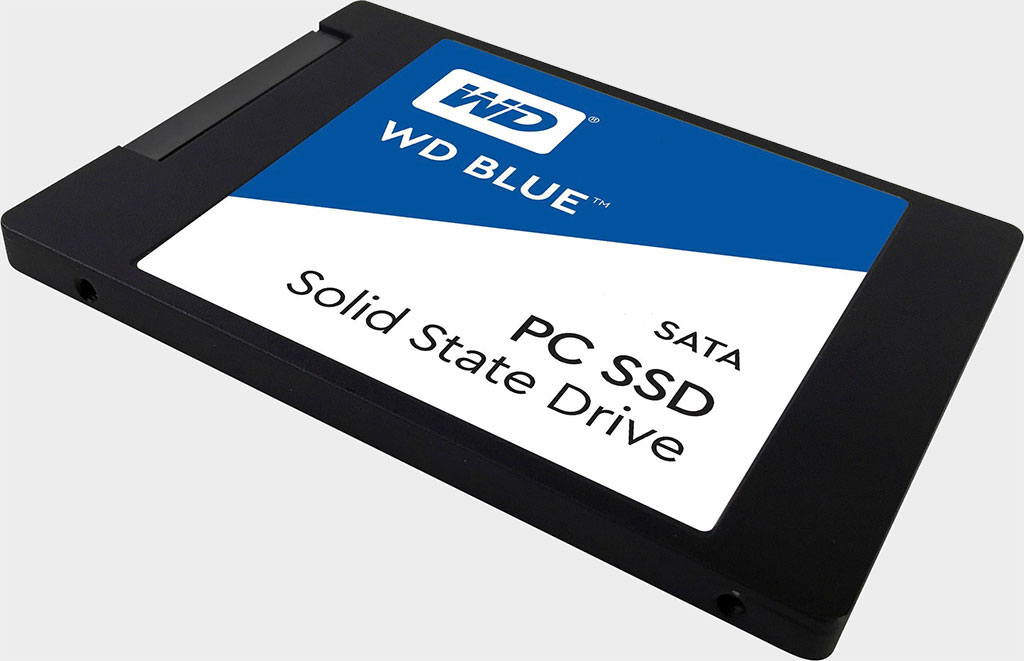You’ll be able to stuff a lot of games on WD’s upcoming 4TB solid state drive
It hasn't been announced yet, but retailers have already starting listing the drive.

The best SSDs for gaming are not necessarily the fastest—capacity and price also come into play. That's why we like Western Digital's Blue SSD line, and specifically the 2TB model, which offers a high capacity at a reasonable price. If that's still not enough, it appears a new 4TB model is launching soon.
WD has not yet announced a 4TB addition to its Blue SSD family, but some retailers have already started listing the drive. As spotted by our friends at Anandtech, the Geizhals.at price search engine shows the 4TB model listed by several Australian retailers, priced at around €554 to €575 (around $621 to $644 in US currency).
That's obviously not cheap, though the price per gigabyte is in line with smaller capacity models. For example, here's how things shake out on Amazon right now:
- WD Blue 2TB—$224.99 (~$0.11 per gigabyte)
- WD Blue 1TB—$119.99 (~$0.12 per gigabyte)
- WD Blue 500GB—$64.99 (~$0.13 per gigabyte)
- WD Blue 250GB—$49.96 (~$0.20 per gigabyte)
Going by a straight conversion in currency (which is not likely to be the case), the 4TB model is priced at around $0.15 per gigabyte on the low end. It should be noted that the prices for the 1TB and 2TB models on Amazon are both sale prices.
WD launched its Blue SSD line in 2017. The drives use triple-level cell (TLC) 3D NAND flash memory paired with a Marvell 88SS1074 controller. They are rated to deliver sequential read and write speeds of up to 560MB/s and 530MB/s, respectively.
The WD Blue SSD series is available in both 2.5-inch and M.2 form factors, though the latter still leans on the SATA interface rather than NVMe/PCIe. While SATA is slower than NVMe, these types of SSDs are still plenty fast for gaming. For those who opt for the M.2 form factor, there is some value in not having to plug in SATA and power cables.
Either way, it's nice to see WD pushing into 4TB territory, where there not a lot of options in the SSD space. From a pricing standpoint, WD's primary competition when the drive comes out will be Samsung's 860 QVO 4TB ($547.99 / ~$0.13 per gigabyte) and 860 Evo 4TB ($661.37 / $0.16 per gigabyte). The WD Blue series has more in common with the 860 Evo, which also uses TLC NAND flash memory.
Keep up to date with the most important stories and the best deals, as picked by the PC Gamer team.
Paul has been playing PC games and raking his knuckles on computer hardware since the Commodore 64. He does not have any tattoos, but thinks it would be cool to get one that reads LOAD"*",8,1. In his off time, he rides motorcycles and wrestles alligators (only one of those is true).


